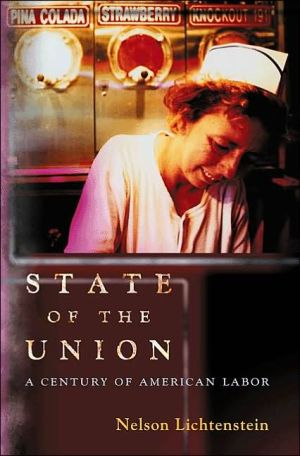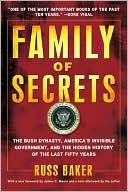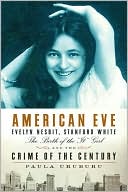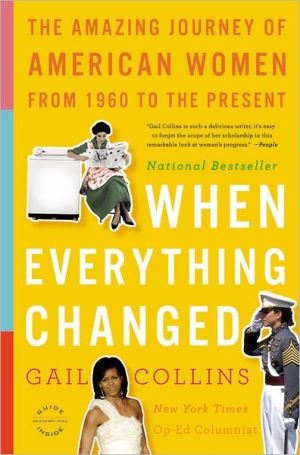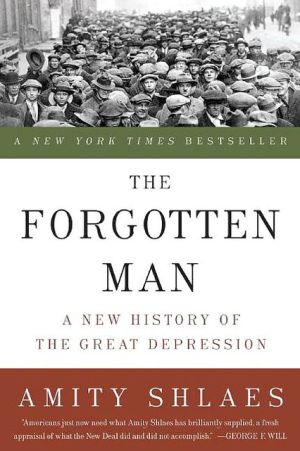State of the Union: A Century of American Labor
In a fresh and timely reinterpretation, Nelson Lichtenstein examines how trade unionism has waxed and waned in the nation's political and moral imagination, among both devoted partisans and intransigent foes. From the steel foundry to the burger-grill, from Woodrow Wilson to John Sweeney, from Homestead to Pittston, Lichtenstein weaves together a compelling matrix of ideas, stories, strikes, laws, and people in a streamlined narrative of work and labor in the twentieth century.\ The "labor...
Search in google:
"Scholars have come to look to Nelson Lichtenstein for state-of-the-art work on American labor history. Now he has synthesized his immense learning into a powerful narrative of the ups and downs of unions since the New Deal. Elegiac, sympathetic, and keenly realistic, State of the Union focuses, above all, on the role of ideas and ideology in shaping contentious outcomes. The writing is engaged, analytically suggestive, and thoughtfully revisionist. Not just students of trade unions, but historians of the moments and episodes Lichtenstein chronicles, will be wrestling with this fascinating book for a long time to come."--Ira Katznelson, Ruggles Professor of Political Science and History, Columbia University"This is a brilliant work of historical synthesis and interpretation. No other historian has produced a narrative that cogently surveys intellectual developments, economic change, political and legal conflict, and the complexities of labor's internal struggles and weaves them into a compelling narrative that makes sense of the rise and fall of the working-class movement."--Michael Kazin, Professor of History, Georgetown University"Lichtenstein's textured account offers an impressive combination of astute historical analysis and keen social insight. Lichtenstein demonstrates how, despite its civil rights origins, the 'rights revolution' of the past generation has joined free-market ideology in undermining the legal and social basis for worker solidarity and union success. Greater individual freedoms have ironically not always helped the working people of America."--David Abraham, Professor of Law, University of Miami Law School"Nelson Lichtenstein, one of our leading historians, follows the movement for democracy and rights at work over the last hundred years, offering a masterful synthesis of the new labor history and the first comprehensive framework for a history of labor in our time."--Dorothy Sue Cobble, Professor of Labor Studies, Rutgers University"State of the Union is a uniquely important study of the labor movement in twentieth-century American politics. Lichtenstein demonstrates both an intricate, grounded knowledge of union dynamics and a finely nuanced, sophisticated understanding of American political history since the New Deal. This book is a must read for anyone seriously interested in making sense of American politics during the last three-quarters of a century."--Adolph Reed, Professor of Political Science on the Graduate Faculty of Political and Social Science, New School University, and member of the Interim National Council of the Labor Party"You can find no better guide to the past and present of the American labor movement than Nelson Lichtenstein. Aimed at a general audience, this book shows how the health of American democracy depends on vital working-class organizations. It examines why unions have flourished in the past and asks how they may do so again."--William Forbath, Professor of Law and History, University of Texas, Austin, and author of Law and the Shaping of the American Labor Movement"Why has the labor movement's ability to speak collectively on behalf of American workers declined so dramatically? Ranging confidently across political, intellectual, social, and economic history, Nelson Lichtenstein gives us a sweeping and provocative analysis of the 'labor question' in the past fifty years--and how workers' basic democratic rights have been increasingly marginalized, contained, or eliminated. He eloquently reminds us that if we are to have democracy in America, we must celebrate, not repress, basic human rights at the workplace."--Dana Frank, Professor of American Studies, University of California, Santa Cruz Commonweal - Kevin Mattson Lichtenstein wants to see labor resuscitate itself. He argues for expanding on the rights revolution: "Rights consciousness and rights rhetoric...remain powerful weapons available to partisans of working people." As a college professor at the University of Virginia, he helped out with labor campaigns organized around the slogan of "Workers Rights Are Civil Rights."
Preface and AcknowledgmentsIntroduction1Ch. 1Reconstructing the 1930s20Ch. 2Citizenship at Work54Ch. 3A Labor-Management Accord?98Ch. 4Erosion of the Union Idea141Ch. 5Rights Consciousness in the Workplace178Ch. 6A Time of Troubles212Ch. 7What Is to Be Done?246Notes277Index323
\ The Washington Post - Joseph A. McCartin\ A remarkable accomplishment. . . . Lichtenstein provides an authoritative account of labor's decline, an agenda for its renewal and an argument for the necessity of its revitalization if American democracy is to thrive in coming years. The result is a brilliant historical introduction to today's labor movement and the perils and possibilities that confront it. . . . If American labor's fortunes do improve, no recent book will have made a greater contribution to its revival.\ \ \ \ \ Chicago Tribune - Eric Arnesen\ Obituaries of the labor movement, or at least predictions of its impending demise, are familiar to readers of the popular and business presses and various academic tomes. However one comes down on the issues of the prospects for labor's revival or the desirablity of democratizing the workplace, the country's recent economic crisis has made the labor question again worth debating vigorously. State of the Union is an excellent start.\ \ \ Plain DealerAbsorbing. . . . Lichtenstein's voice—and book—deserves a hearing in the marketplace of ideas.\ \ \ \ \ Monthly Labor ReviewThought-provoking. . . . State of the Union is a history written with a purpose—to encourage and energize a struggling labor movement, and to remind its leaders, and the reader, of the power of big ideas.\ \ \ \ \ The NationWhile labor's nascent grassroots internationalism remains overshadowed by flag waving displays of 'national unity,' trade unionists have yet to be rewarded for their patriotism, even with a modest boost in unemployment benefits. . . . Into this bleak landscape arrives State of the Union, Nelson Lichtenstein's intellectual history of labor's past 100 years. . . . The author's views are informed by both scholarship and activism\ \ \ \ \ New StatesmanAs an inquiry into 'labor' as a 20th-century idea and ideal, Lichtenstein's book is a thoughtful attempt to link labor's record with the capricious history of identity politics and ideological change. An unabashed partisan on the matter, Lichtenstein maintains that an energetic and forceful labor movement is essential to the economic system and, indeed, to American democracy itself.\ \ \ \ \ Los Angeles Times Book ReviewA richly documented and well-written book.\ \ \ \ \ EH.NETA book to be greatly admired and recommended. Lichtenstein has talked in forthright and keen ways fractious debates among scholars as well as historical and ongoing fractures of American society. . . . The power of his book lies not in prescription, but rather in [Lichtenstein's] acute, erudite and provocative historical analysis.\ \ \ \ \ Journal of American HistoryA fascinating survey of twentieth-century American labor. Unlike many such works, Nelson Lichtenstein's synthesis is a pleasure to read; passionate, shrewd in its judgments, and comprehensive.\ \ \ \ \ In These TimesA century ago labor issues were at the heart of American politics. . . . How could the rights of citizens be protected as the power of capital grew and workers toiled under undemocratic conditions for large private corporations? Historian Nelson Lichtenstein's State of the Union superbly surveys and analyzes how these dilemmas were temporarily resolved in an unsatisfactory way in the middle of the 20th Century. Labor struggles didn't disappear entirely, but largely disappeared from public debate—and have once again become as relevant as during the Progressive Era.\ \ \ \ \ Industrial and Labor Relations ReviewThis is an important, timely book whose focus on ideas and ideology offers a fresh perspective that is sure to generate useful debate over labor's historical choices and current status. . . . Lichtenstein has performed a most valuable service in his astute delineation of the specific historical circumstances that have both advanced and eroded the union idea during the twentieth century.\ \ \ \ \ Chicago TribuneObituaries of the labor movement, or at least predictions of its impending demise, are familiar to readers of the popular and business presses and various academic tomes. However one comes down on the issues of the prospects for labor's revival or the desirablity of democratizing the workplace, the country's recent economic crisis has made the labor question again worth debating vigorously. State of the Union is an excellent start.\ — Eric Arnesen\ \ \ \ \ Plain DealerAbsorbing. . . . Lichtenstein's voice—and book—deserves a hearing in the marketplace of ideas.\ — Karen R. Long\ \ \ \ \ Monthly Labor ReviewThought-provoking. . . . State of the Union is a history written with a purpose—to encourage and energize a struggling labor movement, and to remind its leaders, and the reader, of the power of big ideas.\ — Michael Wald\ \ \ \ \ BooklistLichtenstein provides a knowledgeable overview of the signal events since the Wagner Act of 1935. . . . An informed analytical history.\ \ \ \ \ New StatesmanAs an inquiry into 'labor' as a 20th-century idea and ideal, Lichtenstein's book is a thoughtful attempt to link labor's record with the capricious history of identity politics and ideological change. An unabashed partisan on the matter, Lichtenstein maintains that an energetic and forceful labor movement is essential to the economic system and, indeed, to American democracy itself.\ — Jennifer Szalai\ \ \ \ \ ChoiceLichtenstein has written a thought-provoking book that seeks to put the American labor movement's fate into a broad context. . . . His wide reading, fresh insights, and coherent narrative make this volume one of this year's most important works of labor history.\ \ \ \ \ Los Angeles Times Book ReviewA richly documented and well-written book.\ — Stanley Arnowitz\ \ \ \ \ EH.NETA book to be greatly admired and recommended. Lichtenstein has talked in forthright and keen ways fractious debates among scholars as well as historical and ongoing fractures of American society. . . . The power of his book lies not in prescription, but rather in [Lichtenstein's] acute, erudite and provocative historical analysis.\ — Walter Licht\ \ \ \ \ Journal of American HistoryA fascinating survey of twentieth-century American labor. Unlike many such works, Nelson Lichtenstein's synthesis is a pleasure to read; passionate, shrewd in its judgments, and comprehensive.\ — Lawrence B. Glickman\ \ \ \ \ In These TimesA century ago labor issues were at the heart of American politics. . . . How could the rights of citizens be protected as the power of capital grew and workers toiled under undemocratic conditions for large private corporations? Historian Nelson Lichtenstein's State of the Union superbly surveys and analyzes how these dilemmas were temporarily resolved in an unsatisfactory way in the middle of the 20th Century. Labor struggles didn't disappear entirely, but largely disappeared from public debate—and have once again become as relevant as during the Progressive Era.\ — David Moberg\ \ \ \ \ Industrial and Labor Relations ReviewThis is an important, timely book whose focus on ideas and ideology offers a fresh perspective that is sure to generate useful debate over labor's historical choices and current status. . . . Lichtenstein has performed a most valuable service in his astute delineation of the specific historical circumstances that have both advanced and eroded the union idea during the twentieth century.\ — Robert Bussel\ \ \ \ \ The Washington PostA remarkable accomplishment. . . . Lichtenstein provides an authoritative account of labor's decline, an agenda for its renewal and an argument for the necessity of its revitalization if American democracy is to thrive in coming years. The result is a brilliant historical introduction to today's labor movement and the perils and possibilities that confront it. . . . If American labor's fortunes do improve, no recent book will have made a greater contribution to its revival.\ — Joseph A. McCartin\ \ \ \ \ The NationWhile labor's nascent grassroots internationalism remains overshadowed by flag waving displays of 'national unity,' trade unionists have yet to be rewarded for their patriotism, even with a modest boost in unemployment benefits. . . . Into this bleak landscape arrives State of the Union, Nelson Lichtenstein's intellectual history of labor's past 100 years. . . . The author's views are informed by both scholarship and activism\ — Steve Early\ \ \ \ \ Chicago TribuneObituaries of the labor movement, or at least predictions of its impending demise, are familiar to readers of the popular and business presses and various academic tomes. However one comes down on the issues of the prospects for labor's revival or the desirablity of democratizing the workplace, the country's recent economic crisis has made the labor question again worth debating vigorously. State of the Union is an excellent start.\ — Eric Arnesen\ \ \ \ \ The NationWhile labor's nascent grassroots internationalism remains overshadowed by flag waving displays of 'national unity,' trade unionists have yet to be rewarded for their patriotism, even with a modest boost in unemployment benefits. . . . Into this bleak landscape arrives State of the Union, Nelson Lichtenstein's intellectual history of labor's past 100 years. . . . The author's views are informed by both scholarship and activism\ — Steve Early\ \ \ \ \ In These TimesA century ago labor issues were at the heart of American politics. . . . How could the rights of citizens be protected as the power of capital grew and workers toiled under undemocratic conditions for large private corporations? Historian Nelson Lichtenstein's State of the Union superbly surveys and analyzes how these dilemmas were temporarily resolved in an unsatisfactory way in the middle of the 20th Century. Labor struggles didn't disappear entirely, but largely disappeared from public debate—and have once again become as relevant as during the Progressive Era.\ — David Moberg\ \ \ \ \ Monthly Labor ReviewThought-provoking. . . . State of the Union is a history written with a purpose—to encourage and energize a struggling labor movement, and to remind its leaders, and the reader, of the power of big ideas.\ — Michael Wald\ \ \ \ \ Kevin MattsonLichtenstein wants to see labor resuscitate itself. He argues for expanding on the rights revolution: "Rights consciousness and rights rhetoric...remain powerful weapons available to partisans of working people." As a college professor at the University of Virginia, he helped out with labor campaigns organized around the slogan of "Workers Rights Are Civil Rights."\ — Commonweal\ \ \ \ \ Stanley AronowitzIn State of the Union, a richly documented and well-written book, Nelson Lichtenstein, who teaches history at UC Santa Barbara, traces the rise and decline of American labor, primarily since the Great Depression. He begins the story with the New Deal's struggle to overcome the economic crises of the time.\ — Los Angeles Times Book Review\ \ \ \ \ KLIATTNelson Lichtenstein is a professor of history at the University of California, Santa Barbara, and the author of many books on the labor movement in America. In his latest book, he has written a history of the labor union movement in America, from its inception in the 1930s to its current state. Along with history, he analyzes the cultural, economic, and political influences that have determined the attitudes Americans have had toward unions and labor. Decade by decade, the demands of the union movement and the response by government and management have changed and evolved as the country moved from an industrial society to a service and consumer-oriented one. This is a sophisticated and complex book of ideas that is an important resource for any student of labor unions. KLIATT Codes: SA—Recommended for senior high school students, advanced students, and adults. 2002, Princeton Paperbacks, 336p. illus. notes. index., Ages 15 to adult. \ —Nola Theiss\ \ \ \ \ Library JournalLichtenstein (history, Univ. of California, Santa Barbara; Walter Reuther: The Most Dangerous Man in Detroit) presents a history of American unionism in the 20th century and argues convincingly that a thriving labor movement is an essential safeguard of American democracy. He chronicles the struggle for economic citizenship and security that led to the burst of organizing during the Depression and World War II. After the war, even as unions reached new highs in membership and political activity, their strength was sapped by corporate resistance, their own bureaucratization, legal restrictions, and ideological attacks from the Right by anti-Communist conservatives and from the Left by disenchanted intellectuals. Throughout, Lichtenstein examines both the positive and the negative sides of American labor unions have been champions of civil rights and equal pay and racially exclusive and economically self-interested clubs. But, Lichtenstein argues, as the only organized counterweight to the power of rapacious corporations, unions play an essential role in preserving American ideals. Today, the labor movement faces political, economic, and organizational problems, but it has overcome equally large challenges in the past and remains a vital force for social progress in the United States. Highly recommended for public and academic libraries. Duncan Stewart, State Historical Soc. of Iowa Lib., Iowa City Copyright 2002 Cahners Business Information.\ \
